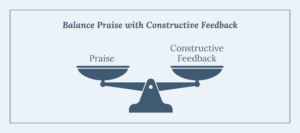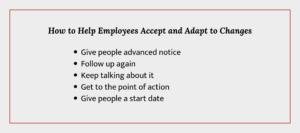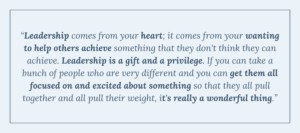
Pt. 2 – Carnegie to Current Day: The Do’s and Don’ts of Impactful Leadership in Justice
Dr. Mary Livers, Ph.D., is a national expert, consultant, trainer, and professor with a career spanning nearly 45 years specializing in adult and juvenile justice operations and leadership development. In today’s post, Mary revisits some of her favorite Dale Carnegie teachings, explaining how they impacted her career in justice and showing how they still ring true for today’s leaders and the aspirational leaders of tomorrow.
Welcome back to part two of our series on Dale Carnegie’s timeless leadership principles, with insights from my own career in justice. In part one, we explored foundational skills like working with staff, building genuine connections, and winning others to your way of thinking. Now, in part two, we’ll delve deeper into how to lead without causing resentment, manage stress effectively, and achieve both personal and team goals with a positive mindset. Join me as we continue this journey, uncovering strategies to enhance your leadership and create a more impactful and resilient team.
Carnegie’s Teachings Today – Key Takeaways for Every Leader
Today, I revisit three more of my favorite Carnegie concepts to show how they still ring true for today’s leaders and the aspirational leaders of tomorrow.
1. On How to Be a Leader and Change People Without Giving Offense or Arousing Resentment
To help someone truly change, you must create an environment that’s safe for people. We all want and are motivated by the same thing – success. To be successful, we need to work as a team, and nothing can divide a team or stoke resentment quicker than incorrectly isolating or highlighting the mistakes of a teammate.
As the leader, I want and need you to be successful. I need to help you. You need to support me. And, as leaders, we owe it to our team to set an honorable example of what that process looks like when confrontation or issues arise.
Do Begin With Praise and Honest Appreciation: Starting with positive feedback sets a constructive tone.
Tip: Start performance reviews by highlighting the employee’s achievements.
As leaders, it’s important we balance praise with constructive feedback to ensure continuous improvement without complacency. Always start with the good things and you can ease into the things that need improvement. In the spirit of continuous improvements, we can always learn, can always look back and see, “maybe there’s a better way to do this?” Or “We could have done it a little differently. What ideas do you have?” That invites people to feel safe and come up with ways that everybody can do better.

Don’t Call Attention to People’s Mistakes Directly: Address issues without embarrassing the individual.
Tip: Use general observations to discuss common mistakes in a team setting.
Never ever point out an individual. I’ve found myself in this situation over the course of my career and learned a few techniques on how to best handle it. Expressing empathy is a powerful way to neutralize the situation. I’ll try saying, “You know, if I were doing exactly what Tim was doing, I would have made the same call. I’d have made the same exact call. So let’s talk about what other options might have been available that might have given us different results.” This way, it’s not personality driven – it’s issue driven, it’s performance driven. It’s not personality driven.
It’s also important to look for effective ways to address mistakes indirectly in a diverse and multicultural team setting. As a leader, you could start off with saying, “I wasn’t aware. I think we need to be aware of the subtleties around this issue. And maybe some of you aren’t aware of the subtleties around this issue but let’s talk about it.” Give people the dedicated time and space to participate in the discussion and open it up by asking, “What can we learn from people here about the situation that we can all learn and grow from?” Whenever possible, make it a learning moment – something that we can all benefit and grow from – because, in the end, it’s all about personal, professional, and team growth.
2. On Not Letting Stress and Worry Get the Best of You
Navigating the complexities of leadership often involves tackling stress and worry head-on, a challenge that has only intensified in our fast-paced world. By following Carnegie’s principles below, you can cultivate a resilient mindset, ensuring you and your team can face challenges with clarity and confidence. Apply these strategies to enhance your leadership, assist staff in handling their workplace stress, and maintain a balanced, forward-looking approach in your career.
Do Live in “Day-Tight Compartments”: Focus on the present rather than worrying about the past or future.
Tip: Encourage mindfulness and set daily goals.
The concept of day-tight compartments is not a new idea – but it’s a good one. The word that I think is more commonly used these days is ‘compartmentalize.’ Compartmentalize issues or a specific problem so that you can tackle things clearly and succinctly and get all the information you need to be able to make a good decision. It’s saying to yourself or your team, “Before moving on to something else, let’s stay focused on this in this box. Let’s deal with this.” Make some decisions (whether it’s to table it, to approve it, to study it more, etc.) but deal with the issue. Close it, and then move on to the next thing.
You don’t go back and re-negotiate. Once it’s done, you put it aside. You move forward, and you don’t relitigate again. You don’t second guess yourself, you just say, “Okay, we’ve dealt with that. We have a plan, let’s move along,” and get to the next issue.
Don’t Fight the Inevitable: Accept what cannot be changed and focus on what can be controlled.
Tip: Adapt to changes in the workplace rather than resisting them.
There are a variety of strategies leaders can implement to help employees accept and adapt to inevitable changes – first and foremost being a lot of communication. Not only “What are we doing?” but “Why are we doing this?” I’ve always believed when you’re introducing something that’s a change, no matter how small or minor you might see it (or how big it is), it’s important you give people advanced notice – “This issue’s come up…”; “We’re thinking about this….”; “We’re thinking about a change and we want to know what you think…”; “What are we not thinking of? Somebody please give us some feedback.” You let people start thinking about it and getting used to the change. Initially, most of the time the reaction is, “No, we don’t like change. We don’t want to do it.” But the next time you bring it up, you do it again. Follow it up again with, “Well, we talked about this two weeks ago. Any more thoughts on this?” You keep doing that. You just keep talking about it. And eventually you get to the point of action, of saying, “Okay, well, we’ve thought about this. We’ve thought about all the different things that could be affected; and the decision is we’re going to go forward with this on this date,” and give people a start date.

It is wise to give a sufficient amount of time for an implementation date. It gives people a chance to adjust their thinking going forward. So by the time you get to the actual start date, people are so worn out with talking about it, they’re just ready to get it done. The willingness to be open in your communications and the repeated discussions on the topic help desensitize them to the change and ready them for what’s to come. The introduction of different concepts goes much more smoothly when people are given the chance to think about it over time. Over time, people will start to truly buy into change, perhaps even asking, “Why didn’t we do this a long time ago?”
3. On Achieving Your Goals and Dreams
We all need purpose and goals. And we all need direction. That’s ones of the biggest responsibilities, and honors, of being a leader – helping to create that purpose, that vision. We need to help create the goals and start discussions with our staff to help talk about what steps are involved in making those visions a reality. Approaching this effort as a team is ten times more effective than trying to figure it out on your own.
Do Set Clear and Achievable Goals for Your Team: Having specific goals gives direction and purpose.
Tip: Create SMART (Specific, Measurable, Achievable, Relevant, Time-bound) goals for projects.
Goal setting frameworks like SMART can and should be integrated into personal development plans for staff in civic and justice facilities. It’s really a strategy to keep people focused on what you’re trying to accomplish. It ensures what you’re striving for is achievable. You’re able to measure your effort and progress. It’s a very good way to communicate exactly where you are every step of the way and it’s extremely helpful when you’re dealing with a lot of different people involved with different tasks.
Don’t Veer Toward the Negative – Strive to Keep a Positive Mindset: Optimism can drive motivation and success.
Tip: Cultivate a workplace culture that celebrates wins and learns from setbacks.
When it comes to having a positive mindset, it’s my opinion that leaders must be driven that way or strive to be that way as much as possible. As human beings, we tend to go toward the negative. If we’re left to our own devices, we can easily turn into Winnie the Pooh’s good friend, Eeyore – “Oh, it was a terrible day. It’s awful today…”; “I can’t do anything. I’m a victim…”; “Nobody told me I could do it…”; etc. Sometimes people just gravitate to that negativity, and one negative person can pull down the whole team. Because of this, and many other reasons, the leader must be somewhat of a cheerleader; somebody who believes in the team, believes in the goals, believes in the vision, and motivates people to believe they can achieve it.
Do Emphasize the Importance of Learning and Professional Development: Education is key and professional organizations can help tremendously.
Tip: Identify and introduce various professional organizations and/or their teachings to the team that are relevant to your specific industry or to the specific skillsets members of the team are looking to grow.
One of the things that I was known for in my career was having these great big visions and goals for my staff. It became quite comical. As a member of several professional organizations in the justice community, I made it a point to regularly attend conferences, which my staff claimed to have hated because they knew I’d come back with 20+ new ideas or concepts for us to do, try, or work on. They’d complain about it, but I think they wanted to be challenged.
Staff want to be on the cutting edge of their practice. They wanted to be part of something important. So the biggest compliment you can give staff is to set those big goals.
Many times, my staff would say, “I’m never going to get this done. It’s huge. I don’t even know where to start…” to which I’d respond, “You’re going to do it because I know you can do it. You can make this happen. You’ll figure it out. Come to me if you need to talk about it. But you can do this. Know that.”

In the End, I Did it My Way (and You Should, Too)
Every time I went to my Dale Carnegie class, I had to get up and speak. No way around it; no matter how much of a master imposter I had once prided myself in being. And by having to do it, I learned how to do it, but I learned how to do it my way. That was one of the most important things that Carnegie’s course and trainings taught me – just do it your way. Being nervous is normal, it’s fine. Just speak from your heart, be prepared and do it. Use your personality. Do it your way, and don’t compare yourself to anybody else.
Comparing yourself to anybody is a no-win scenario. You’ll never be as good as this person, that person, whoever. And that simple fact relieved me so much. It changed everything. I didn’t have to be the best. I could just do it. I could just get up there and speak from the heart. And that changed my whole life.
Dale Carnegie – that guy knew what he was talking about.




